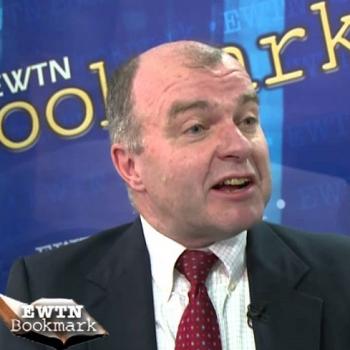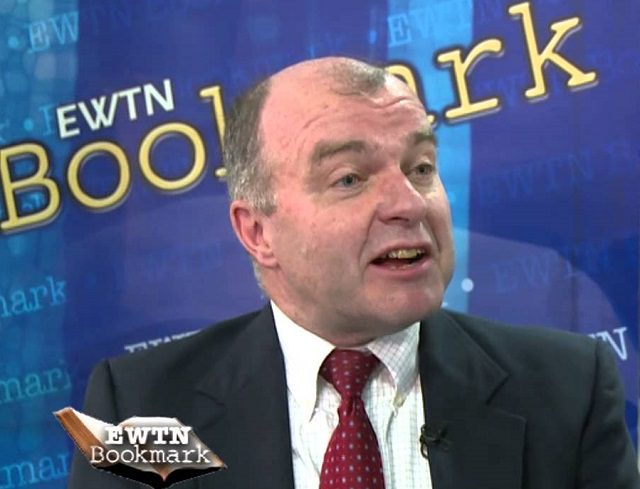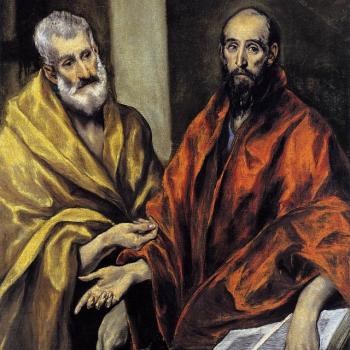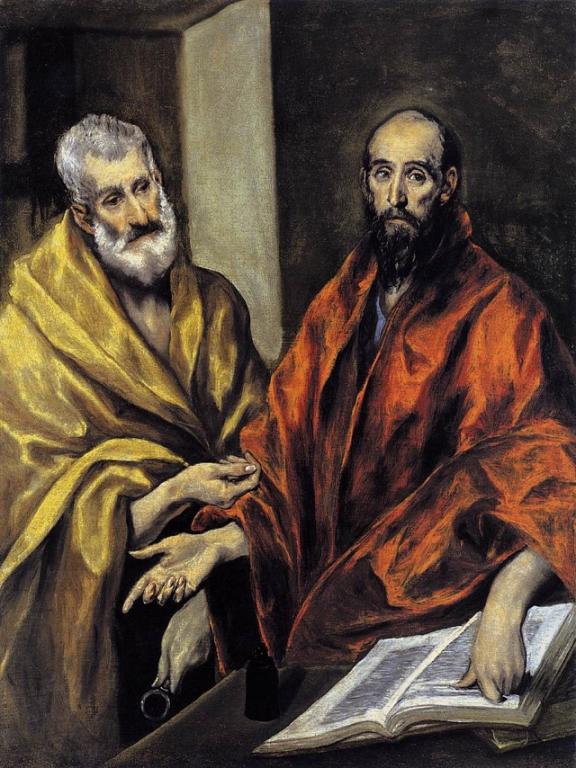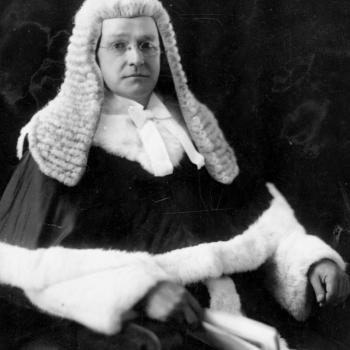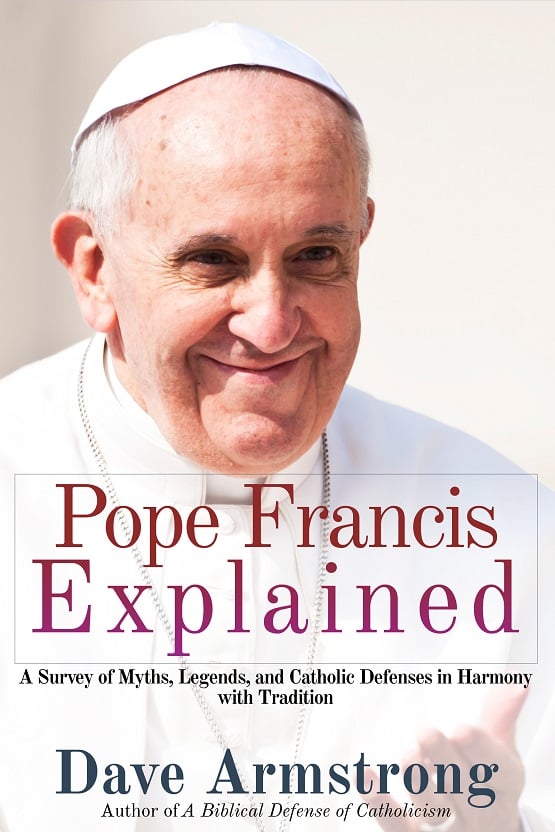
Has Pope Francis strayed from Catholic tradition? Currently, a big debate is taking place among Catholics about that. It has even infiltrated the ranks of Catholic apologists (my field), with prominent figure Karl Keating now being openly critical of Pope Francis, in a way that I think far exceeds the proper bounds of propriety and established fact. We’re good friends, and we disagree amiably, but we sure have some major disagreements on this score.
For background, see my recent articles, On Rebuking Popes & Catholic Obedience to Popes, and Quasi-Defectibility and Phil Lawler vs. Pope Francis. These exchanges occurred in my Patheos combox and lengthy Facebook threads on my page and Karl Keating’s page (both set on “public”). Karl’s words will be in blue, and Phil Lawler’s in green.
*****
Dave:
You have done Phil Lawler a grave disservice in what you have written. You admit that your only knowledge of his upcoming book, “Lost Shepherd,” comes from my review of it. (I was sent and carefully read a pre-publication copy.) You haven’t read the book yourself, yet you feel free to characterize it (really, mischaracterize it)–and Lawler. I expected more from you.
You complain that people won’t buy a book you wrote defending Pope Francis but they likely will buy “a book that trashes the pope,” by which you mean Lawler’s.
First of all, his book doesn’t “trash” the pope at all (but you wouldn’t know that since you haven’t read it yet). It’s a respectful examination, in considerable depth, of issues that people of various persuasions have called confusing or problematic or unbecoming.
Second of all, your book came out almost exactly four years ago, long before “Amoris Laetitia,” long before the synods, long before the personnel upheavals at the Vatican, long before the pope’s management style became evident. I have looked at your book’s table of contents: very few of the topics there are covered in Lawler’s book, and almost nothing that he writes about is covered in yours. You seem piqued that his book is likely to sell far better than yours, and you seem to attribute the variance to defects in human nature, the implication being that people like to read downbeat rather than upbeat books. (You don’t seem to take into account that your book’s failure to see substantial sales may have quite different causes.)
You accuse Lawler of “doublethink” and virtually label him a reactionary (you say he uses reactionary methods), and you accuse him of holding something you call the “quasi-defectibility” position. Such labeling doesn’t clarify; it obscures–much as you would say that certain Traditionalists’ use of “neo-Catholic” to describe your position (or mine) obscures and doesn’t clarify. But the use of an unhelpful term such as “quasi-defectibility” is a lesser problem. A greater one is that you throw Lawler into the reactionary camp, which, on your scale, is the unsavory wing of Traditionalism. But Lawler isn’t a reactionary at all (even though, granted, he is “reacting” to certain papal actions), and I can’t think of any Traditionalist Catholics who would label him even a Traditionalist. His book makes evident (something I already knew) that he is a man of conservative temperament, slow to draw conclusions, anxious to give Churchmen the benefit of the doubt. He is more a Russell Kirk than a Michael Voris.
I’m quite disappointed at the way you have been handling this. You have let it appear that there is a personal element involved (as with your book), but mostly you have gone off half-cocked, have done a good man a bad turn, and have gotten not a few things just plain wrong.
You seem too wrapped up in the controversy personally. I suggest you move on to something else. Please take down the tendentious commentary, give private thought to what you have written, and send Phil an apology.
Karl
***
Hi Karl,
Thanks for your reply. [I have added additional relevant material from Facebook to my originally shorter Patheos reply]
I didn’t classify Phil as a reactionary, though I can see why someone would think so. I merely noted that in what I have been able to see so far in his book, he is thinking like one in some key / characteristic respects. In my Facebook discussions today, I clarified this very thing:
I don’t know if Lawler is a reactionary or not. He may have crossed the line, or is close to it, and/or is about to do so. He has now (seemingly) come to a position that the reactionary sites have been maintaining for four years.
I know, from the evidence presented thus far, that he is definitely thinking like them in this instance. That’s not just me rambling off the top of my head. I’ve studied reactionaries for 25 years; written two books and scores and scores of articles about them. . . .
In an article from August, Lawler starts the process of opening up the possibility of questioning Vatican II itself: not just a warped implementation of it by the so-called “progressive” dissidents. This is a second classic hallmark of the reactionary mindset. In particular, his recourse to “ambiguity” in VCII is right from the reactionary playbook. Lawler is plainly telling us that he is considering accepting this plank, too.
Here are four paragraphs from that article. Lawler starts the process of opening up the possibility of questioning Vatican II itself: not just a warped implementation of it by the so-called “progressive” dissidents. This is a second classic hallmark of the reactionary mindset. In particular, his recourse to “ambiguity” in VCII is right from the reactionary playbook. Lawler is plainly telling us that he is considering accepting this plank, too. Assuming he does, then all that remains to be a full-fledged reactionary is to trash the Pauline Mass and ecumenism. Lawler writes:
But what about the “conservative” interpretation? Is it persuasive? Can it be reconciled with the facts? Sammons and Mosebach argue that the time has come for a frank—that is, uncensored—discussion of these questions.
Did the problems that arose after Vatican II come solely because the Council’s teachings were ignored, or improperly applied? Or were there difficulties with the documents themselves? Were there enough ambiguities in the Council’s teaching to create confusion? If so, were the ambiguities intentional—the result of compromises by the Council fathers?
Suggesting that there could be difficulties with some Vatican II documents does not mean denying the authority of the Council’s teaching. No document drafted by human hands will ever be perfect. There may be a need for clarification, elucidation, explanation, even correction.
More to the point, while it is certainly true that the “spirit of Vatican II” that is often cited in support of radical changes cannot be reconciled with the actual teachings of the Council, it is also true that the proponents of change can cite specific passages from Council documents in support of their plans. So are those passages being misinterpreted. Are they taken out of context? Or are there troublesome elements of the Council’s teaching, with which we should now grapple honestly? One thing is certain: we will not solve the problem by pretending that it does not exist.
Reactionary site One Peter Five took note in August of how Lawler was starting to question Vatican II (which they approve of):
In addition to de Mattei’s clear and strong assessment of the Second Vatican Council, Eric Sammons, a contributor to OnePeterFive, has raised the question of self-censorship with regard to the Vatican II discussion and thus invites an honest and courageous debate about the matter. Phil Lawler has already himself responded to that invitation. [link to his article provided]
Lawler wrote in another article:
In the “Public Square” section of the magazine’s December issue, editor R. R. Reno argues: “Pope Francis and his associates want to sign a peace treaty with the sexual revolution.” At the heart of his essay (which can be found under the subhead “Bourgeois religion,” Reno provides the background for this charge:
“Catholicism and other forms of establishment Christianity in the West tend to take the form of bourgeois religion. That term denotes the fusion of church culture with the moral consensus held by the good, respectable people who set the tone for society as a whole.”
The views of “good respectable people” have been shifting steadily, Reno observes, and Church leaders have hustled to stay in step, trimming their principles to fit the latest fashions. With Pope Francis the retreat from principle has become unmistakable . . .
If that is true, it’s rank heresy and a deliberate attempt to legitimize the many moral sins of the sexual revolution. This is nonsense, and outrageous.
In one place you say I “throw” him into the camp, but in another you are more accurate, noting that I “virtually label him a reactionary (you say he uses reactionary methods).”
I haven’t characterized the whole book because I haven’t read it. I stated, “What exactly is Lawler claiming? What teaching of the Church is Pope Francis supposedly going to change? Well, we don’t know for sure yet. The book comes out next February 26th.” But the portions you cite are, to me, very serious and unwarranted charges. He believes that Pope Francis is “leading the Church away from the ancient sources of the Faith” and is “engaged in a deliberate effort to change what the Church teaches.” Those are extremely serious accusations.
You’re correct that my book on Pope Francis came out before most of the controversies about him took place. I can’t change that fact. And there could be lots of reasons why it didn’t sell apart from its optimistic nature (foremost among them, that it is self-published and has very little advertising). I was merely making a footnote point about what people like to buy: how they prefer “pessimistic” works to more optimistic and positive ones. It’s easy as pie to provide evidence that strongly supports that contention.
The Dictator Pope is currently at #4,582 in the Amazon Kindle store, and #1 in the “Popes & the Vatican” category. The Political Pope: How Pope Francis Is Delighting the Liberal Left and Abandoning Conservatives is doing very good as well (#73,215 and #23 respectively). Nice, edifying works for the Catholic flock to meditate upon . . . In contrast, your book published in November (Booked for Life: The Bibliographic Memoir of an Accidental Apologist, is ranked at #423,410 and #463 even in the “Apologetics” category. That’s almost as low as my book on the pope! (#600,310 and #426).
Is that because yours is a lousy book? No. Yours are uniformly excellent. Is it because of lack of advertising? No. It’s published by Catholic Answers, and (very unlike myself) you have plenty of money yourself to advertise it if you want to. So perhaps readers’ preferences tie into that a bit. Just a thought . . .
I should have known that such an observation about people liking negative books would be misunderstood. I will remove it now for that reason. There is more than enough in my piece that is controversial, without adding an unnecessary “footnote” and leaving myself open to folks foolishly speculating upon my supposed internal states of mind and alleged jealousy, etc.
Quasi-defectibility is indeed a helpful opinion to analyze, because it is highly characteristic of reactionary thought. You don’t critique my actual reasoning; you simply object to the term. But that’s not an argument. If I simply tossed out the term as an epithet with no accompanying reasoning, you would have a legitimate point. But I don’t do that. I explain exactly why I think so, by citing my book from 15 years ago.
I often argue in terms of analogy, and this is an extended example of that. Phil Lawler is increasingly arguing the way that reactionaries have in the past. That’s simply a fact. And it is verified by the fact that the major reactionary sites (One Peter Five, The Remnant, Rorate Caeli, Lifesite News) are increasingly extolling his work, as he has become more and more critical of the pope.
This is not insignificant. As an observer of these groups for over 25 years (and also with a sociological background — my college degree, that I often utilize in my apologetics work), I see the patterns of their behavior. Lawler appears to presently be their “darling” among us “neo-Catholics”: the one they hope will come over to their side completely. If we want to see if a person is possibly heading down the road to reactionary Catholicism, we can look to see what the known reactionary sites are saying about them: if they are praised as having exceptional integrity, a cut above the other compromised “neo-Catholics” etc. etc. And so we see that this is the case with Lawler. I shall now document this, with links.
Steve Skojec of One Peter Five, stated over a year ago (12-5-16):
If you have ever been a follower of CatholicCulture.org, you may well have given up on getting any but the most biased coverage of the papacy from them some time ago. But while Jeff Mirus has demonstrated remarkable resilience to the red pill (with cracks only just beginning to show), Phil Lawler has been on a steadily accelerating trajectory to Truthville.
Today, he offers one of his simplest and best pieces to date, entitled, Three things the Pope can’t say. This is sort of a 101, everyman level attempt to tackle what those Divinely-guided papal powers really entail, and I suspect it’s going to be very valuable to those Catholics who have only just recently started catching on to the war brewing in Rome: . . .
That is, in reactionary-speak, he’s starting to argue and think more and more like them . . .
No, Dave, what Steve Skojec may opine tells us nothing. If you were to say something he agrees with on some other issue, he might praise you and claim that soon you’d join his little army. But you wouldn’t be doing any such thing.
That Skojec or someone else praises Lawler tells us nothing about Lawler, other than that he has written on a subject that Skojec is interested in.
You’re trying to draw far too much out of the situation.
It’s not just him, but all the major reactionary sites, which is a significant pattern. They’re even noting how Lawler is starting to question Vatican II (so should you). Only time will tell how far things go. But there is nothing wrong with seeing signs and indications, based on past experiences. These are troubling.
Lawler is [what I would call] bashing a pope. They like that and they see it. He’s starting to question Vatican II. They (who despise VCII) like that and they see it. He’s talking in quasi-defectibility terms. They resonate with that, too, and see it.
The trends are real and they are towards the right of the ecclesiological spectrum: towards traditionalism and possibly in the future past that category, to radical reactionary Catholicism.
He’s not all the way there, but the ones who are see the signs and hope he will keep going all the way. Perfectly consistent.
You apparently assume he will stop at the point he is now, even though his past few years shows him becoming more and more “anti-Francis” and now he’s considering taking a dim view of VCII as well. If he turns decisively against VCII, that will be two out of the four always-present hallmarks of the reactionaries (blasting the ordinary form and ecumenism being the other two).
He could also go the route of asserting that Francis is guilty of personal heresy, or has (or soon will) bind the Church to it. If he does that, he would simply be following the path that the reactionary extremists have been on regarding all the popes since Pius XII: but more so, the later the pope.
Everyone makes assumptions about others, in the realm of the world of ideas. You guys are doing it with Pope Francis, yet you object when we apply the same analysis to you: projecting possibilities based on trends and increasing emphases, and also associations. The latter is done with Pope Francis all the time: he appointed this liberal; he dismissed this good conservative, etc. And so you conclude there is some nefarious plot or conspiracy taking place: Francis aims to subvert the Church.
We apply the same sort of sociological speculation (though infinitely less serious in nature) to Lawler and you inconsistently cry foul.
Paul VI named Rembert Weakland Archbishop of Milwaukee. John Paul II named Joseph Bernardin Archbishop of Chicago. Each appointment was disastrous. What did these appointments tell us about those popes? Just about nothing. In making episcopal appointments popes rely on nuncios. In modern times particularly there have been nuncios with their own agendas, such as Jean Jadot. He recommended lots of men who never should have been consecrated.
Was it okay, at those times, for Catholics to complain about the appointments of Weakland and Bernardin (their backgrounds weren’t unknown)? Sure–certainly to the point of criticizing the nuncios but even to the point of saying that the popes should have taken more care in choosing the nuncios they relied on so much.
As for Francis, there’s nothing wrong with people opining that he has named as bishops certain men who should have remained as common priests. (And there’s nothing wrong if people at the other end of the spectrum criticize other appointments.) No Catholic is obliged to act or think that particular appointments are prudent or good for the Church.
As for Lawler sliding down what you consider to be a slippery slope (and without brakes), someone could take your logic and say about some well-known theological liberal who recently has embraced a few orthodox positions: “there’s no stopping his slide, from one extreme to the other–he’ll end up a Traditionalist!”
***
Skojec again approvingly cites Lawler regarding contraception in July 2017. Chris Ferrara at the notoriously reactionary site The Remnant praised Lawler in Sep. 2016 (you’ll never see them praise me!). The same thing is true of reactionary site, Lifesite News (they are praising Lawler), and Rorate Caeli. I’m sure we could find much more. I know how these people think. They latch onto any prominent persons in what they call the category of “neo-Catholicism” and see if they are becoming more traditionalist and then onto their own reactionary Catholicism. I’ve seen it time and again. So now one of their darlings is Phil Lawler. They hope and pray that he will fully join them. In the meantime, they’ll keep praising him. Mark my words!
As one who is personally familiar with the trajectory of people like Robert Sungenis and Gerry Matatics (former employee of Catholic Answers), it’s remarkable to me that you don’t see any of these warning signs. Time will tell, won’t it? Lawler’s not a reactionary now, but he may yet be. And if he ends up there, I called it, and warned people that it was coming, just as I warned people like Mario Derksen in 2000 that he was on the road to possible schism (he shortly thereafter became a sedevacantist, like Matatics). The reactionaries themselves think he is on the road, and so do I. I could be wrong, of course. I hope I am. But his book will do great damage whether he descends to full-fledged reactionary status or not.
I’m quite disappointed at the way you have been handling this.
That feeling is quite mutual. You have made zero arguments against my actual reasoning and arguments. You want to make this personal, which it is not, claim that I am approaching it from a mere “personal” angle (which is goofy psychoanalysis), and say I am “half-cocked.” You talk about me rather than my arguments. Arguments against reactionary-type thought usually are ignored. That’s nothing new. The new and sad thing is that you are the one minimizing and ignoring them (at least in my case).
I’m taking nothing down except the one paragraph that you wildly misunderstood. I have no obligation to apologize for an analysis of ideas in a book that you have publicly reviewed. I looked at the portions you cited and have critiqued them. I never claimed I was reviewing the entire book. It’s the exchange of ideas. Did Phil expect that no one would be critical of his book (or in this case, some controversial portions of it)? If there is any apology due here, it is Phil’s to the Holy Father.
He is welcome to come here and discuss things, man-to-man. I will treat him respectfully, just as I have you. It’s an honest disagreement about important issues.
***
I tremble for Phil Lawler. James 3:1 states: “Let not many of you become teachers, my brethren, for you know that we who teach shall be judged with greater strictness.” I have to stand accountable to God as an apologist for what I teach. God forbid that I lead anyone *away* from the pope and Church, and spread any falsehood.
If I’m wrong in this, I am out of a sincere desire to defend pope and Church. If I’m wrong about Pope Francis, then at least I have done all I can to give him every last benefit of the doubt. I will go down defending a pope rather than trashing him. I’ll take that “wager” any day of the week.
***
The statements in the book of Pope Francis “leading the Church away from the ancient sources of the Faith” and his supposedly being “engaged in a deliberate effort to change what the Church teaches” are certainly garbage. You can classify that as whatever category you want, but it’s undeniably garbage: especially without proof.
It looks like Lawler offers no proof of the above since he also wrote: “Pope Francis has not taught heresy.” That *would* be the proof: to demonstrate where the Holy Father has gone astray from Catholic tradition and binding, magisterial teachings.
If he is in fact attempting to change something that ought not be changed in Catholic theology and practice, that is either heresy proper or if not technically heresy according to canon law, at least a destructive sort of heterodox, dissenting spirit not in line with faithful orthodoxy. Either way it’s extremely serious, and this is the claim made.
We’re shocked that you have endorsed it.
If you keep harping on the fact that we haven’t read the whole book, then send me the damned thing (since you have it). I guarantee I will find more in it that is objectionable. As it is, the few statements you have shown us are outrageous and outlandish.
I couldn’t care less about the pope’s personal habits and how he deals with people: no more than I care a whit about how you used to run Catholic Answers. That has nothing to do with the question at hand. no one is claiming that he or any other pope is impeccable. I want to see ironclad proof that he has changed or sought to change anything that is infallibly taught.
You say–on the basis of two short quotations–that Lawler’s book is “undeniably garbage: especially without proof.” How do you know what “proof” Lawler serves up? You haven’t seen the book yet. You know none of its words beyond the few that I quoted. You don’t know whether Lawler offers not one shred of proof (your assumption, clearly) or pages upon pages of proof.
What you should have said is this: nothing. At this point, you have almost no information to go on regarding the book, which is 256 pages long. I quoted well less than a page worth. If the tables were turned, you’d be outraged–and justifiably so.
It would be easy for someone looking at just a couple of sentences of phrases from one of your books to put an entirely unfair spin on it. Such a person could say, “Armstrong doesn’t have a clue what he’s talking about in this book,” even though you might make a solid (not necessarily convincing or compelling) case for whatever your theme is. Such a person might well read into those few snippets from you things that simply aren’t there–as you have with Lawler.
I did not say the book was “garbage” based on a few quotes. I said that those quotes were garbage. Here it is again:
The statements in the book of Pope Francis “leading the Church away from the ancient sources of the Faith” and his supposedly being “engaged in a deliberate effort to change what the Church teaches” are certainly garbage. You can classify that [i.e., those two remarks] as whatever category you want, but it’s undeniably garbage: especially without proof.
Fine, you meant only those two quotations, but even regarding them my point remains: you don’t know what comes before and after them; you don’t know if Lawler proffered reasons for those comments or just drew them out of a hat.
Until you read the book, I think you should allow for the possibility that a fellow as otherwise astute as Lawler might have reasons that just haven’t occurred to you yet. Then again, he might not. Since you can’t know until you read the book, I don’t think you should have made such heated comments.
You can either send me the book, or you can keep harping on this theme of my essential unfairness because I haven’t read it. Your choice.
Another thing: I do think a pope’s comportment matters. I also think a president’s comportment matters, as do the comportments of Catholic apologists.
In ages past there were popes whose “personal habits” (to use your term) greatly harmed the Church. They never taught erroneously, but many people lost their faith because of them.
I’m not saying this is happening with Francis, but popes are more than theological oracles. They’re also spiritual fathers of the highest level. Their comportment matters, in countless ways, even if the note of infallibility doesn’t apply.
I didn’t say that a pope’s behavior doesn’t matter at all. Of course, we want popes as holy as possible. We’ve had two saint-popes in 60 years and a Blessed as well, which is fantastic.
In context (which is always how things need to be interpreted), I was clearly referring to the relation of that to the issue at hand, as I stated: “I couldn’t care less about the pope’s personal habits and how he deals with people: no more than I care a whit about how you used to run Catholic Answers. That has nothing to do with the question at hand.”
In other words, I don’t care about it in relation to the dispute in question: whether he intends to change Church teaching or not. That’s not the same as saying I don’t care about it, period.
***
As I explained to Karl many hours ago now at Patheos, I have not classified Lawler as a reactionary. I specifically said I didn’t know if he was or not.
What I actually contend is that some strains of his thought closely reflect standard reactionary thinking in key areas. It’s not a distinction that only a rocket scientist can grasp. I’m sure Karl is quite capable of it.
I’m also getting tired real quick of this rhetoric that I have “reviewed” a book that I haven’t read. I reviewed a few lines of it that I thought were outrageous and altogether worthy of a strong critique and warning flag.
Karl has not overthrown any of my actual arguments made in this regard. He hasn’t even attempted it. It would be most welcome if he would do that, then we can have a real, substantive discussion, instead of this mutual monologue nonsense, with followers rah-rahing.
He has a lot more cheerleaders on his Facebook page than I do, so I’m sure he’ll get plenty of cheering and encouragement. I couldn’t care less about that. I want to discuss the issues, calmly, rationally, and comprehensively.
In any event, Karl is my friend, and I have immense respect for him. Having a disagreement doesn’t change that. Why would it? So for those who want to make out that this is some clash between friends who are now bitter enemies, it’s hogwash. Karl reiterates that we are friends above [in his Facebook post].
If you’re [one mutual friend observer] looking for a boxing match, at this point Karl hasn’t left the corner (my best theory is that he is deathly afraid of my knockout punch potential). He has yet to engage my arguments proper. He’s nitpicking about method and minutiae and has fancies of imagination about my supposed inner states.
I can assure all that I am calm as a cucumber, as I almost always am. Anyone who has met me knows what my laid-back, soft-spoken, easy-going temperament is like. And Karl has met me several times . . .
Am I passionate about ideas and debates and truth (and in this instance, the papacy)?: absolutely. That’s entirely distinct from being out-of-control emotional and letting those emotions affect one’s reasoning.
***
Of course it’s possible hypothetically that a pope could personally (and privately) be a heretic, and many believe that it happened in fact, with Honorius and John XXII (I agree in the latter case and disagree in the former).
The question, then, is if Keating and Lawler think that Pope Francis will promulgate some heretical teaching and bind the faithful to it. That’s what Bellarmine and most theologians say is absolutely impossible, per indefectibility.
*****
If you give me your email address, I can send you a copy of the proofs, and you can make your judgment on the full book. I don’t doubt that you’ll still have problems with it, but I hope you won’t conclude that I have become a reactionary. And I hope you’ll be polite enough to state your disagreements without saying that the book stinks to high heaven.
With the whole book in hand you can also reach your own conclusion as to whether my tone is properly respectful of Pope Francis and his rightful authority. Again I suspect your judgment will still be negative, and that’s fair enough, as long as you don’t misrepresent my position.
In the article that you cite as evidence that I am ready to question Vatican II itself, here’s what I actually said:
“Suggesting that there could be difficulties with some Vatican II documents does not mean denying the authority of the Council’s teaching. No document drafted by human hands will ever be perfect. There may be a need for clarification, elucidation, explanation, even correction.”
Your own argument about “quasi-defectibility” puzzles me because, taken to the extreme, it suggests that nothing said or written by a Pontiff or Council should ever be subject to questions or clarifications.
But Pope Francis presents us with a more complicated situation, because if statements by one Roman Pontiff contradict those of another, we cannot fall back on indefectibility to resolve the contradiction. That is the source of the current confusion, which my book seeks to address.
A final point: You mention that some authors appear to take a Doomsday approach because it helps to sell books. Maybe that’s true. But soon after making that accusation, you yourself say:
“Lawler’s not a reactionary now, but he may yet be. And if he ends up there, I called it, and warned people that it was coming…”
So I think it’s fair to say that there are openings at both ends of the via negativa.
Hi Phil,
Thanks for replying and for the generous offer to send me your book, which you know I will likely be critical of. Thank you. Let me assure you, first of all, that none of this is personal. I have admired your work for a long time and often linked to your articles and others at Catholic Culture. And I know that you guys have always positively reviewed my website in your ratings of sites. I have another apologist friend who cares little for Pope Francis, yet we remain best of friends. For me, disagreements are no reason to end a friendship.
But know that it is precisely out of existing profound respect for folks like you and Karl, that I am all the more distressed to see the positions you have arrived at, which I deeply, sincerely believe are erroneous. And I’m very concerned at the effect a person like Karl taking this position publicly, and your book coming out, will have on the faithful.
My position — recently expressed at length — is that these matters ought to have been confined to very private Catholic spheres (and for that matter, to bishops and theologians). I’m only out here defending the pope publicly because the criticisms (aka “attacks”) have been public, and it is only fair to the Holy Father that his defenders take on the critics in public, where they have (sadly) chosen to operate. It’s a sad spectacle indeed, where now, a Catholic apologist like me, is seen as some weirdo or kook or “extremist” (in Karl’s words, “half-cocked”) because I defend the pope! One can’t make such things up.
Yes, that paragraph of your article on Vatican II is what sounds most “orthodox” and (for lack of a better term) “conventional Catholic approach.” On my Facebook page I provided the link and four paragraphs. [cited above already] . . .
The reference to “ambiguities” is absolutely classic “reactionary-speak.” If you fully adopt this viewpoint, it unquestionably is identical to how reactionaries have regarded the Council for 50 years. And that is alarming, and why I believe you are going down that road (with all the major reactionary sites cheerleading you on and praising you to the skies).
If you don’t want to be a reactionary or think of yourself as one, let me issue a friendly challenge to you: write an article that explicitly denounces what you see as fundamentally wrong with sites like One Peter Five, The Remnant, Rorate Caeli, and Lifesite News, especially as regards the pope. If you don’t like the association, that is naturally drawn, then by all means, distance yourself from it. You’re the one, after all, who clearly doesn’t want to be associated with the term (or the field of thought), “reactionary.”
*
Sorry, but I’m going to decline your challenge. I’m not in the habit of denouncing people for the sake of my own reputation. The sites that you mention have, to varying degrees, expressed their disagreements with me. Evidently they don’t think that an association can be “naturally drawn,” nor do I. If you can’t see the distinctions– or, seeing them, you prefer to minimize them to make your point– that’s beyond my control.
*
Thanks for considering it, before declining.
Your own argument about “quasi-defectibility” puzzles me because, taken to the extreme, it suggests that nothing said or written by a Pontiff or Council should ever be subject to questions or clarifications.
Yes, “taken to an extreme” or distorted. That’s not, of course, my position. I made very clear in my recent post on “Rebuking Popes” that it has never been my view that a pope can never be questioned at all. I cited my hero Cardinal Newman’s very strong statements on obedience but then immediately clarified that I didn’t totally agree with him; that I thought there were carefully limited times and places that a pope can be rebuked: preferably by saints. Then I cited an old paper of mine detailing how St. Catherine did this.
Needless to say, I don’t think the conditions are met in the current gallery of papal critics. But it’s important to grasp that my position is not, and never has been, “the pope can never be criticized or asked to clarify anything.” Anyone who continues to claim that, having seen one of my billion clarifications, is lying.
In fact, in a very popular article of mine for National Catholic Register in September, I argued that it would be very good for the pope to clarify folks’ confusion, and to reply to the dubia.
That’s hardly consistent with a supposed position of opposing even “questions or clarifications.” I’m not an ultramontanist; I don’t advocate blind faith or obedience. Whoever claims that about me (having seen me deny that it is true) is lying.
You are concerned (rightly so) about people properly understanding your arguments about the pope. So am I, about my own views! I think both sides have likely not completely understood the other. I know my views are not totally grasped (the example I just gave illustrates that). That’s why I seek actual serious, amiable dialogue. Perhaps Karl and I, and you and I, will attain to that desired state of affairs. I devoutly hope so. We’re all conducting ourselves like Christian gentleman. We can and should continue to do so.
People are not gonna understand what I’m saying unless they 1) read my relevant material in the first place, and 2) if they misunderstand it, as Karl has massively been doing, to be willing to engage me in real dialogue, so as to properly understand what I’m saying, agree or disagree. Literally, all Karl did in his initial reply on my blog was complain about my method and basically caricature what my views are (then told me I should remove the whole thing). He never directly interacted with them; made no attempt (at least not as far as he expressed his views in writing) to understand my argument. I’ve been studying reactionaries for 25 years, with two books on the topic.
statements by one Roman Pontiff contradict those of another
Wholly apart from the current debate, it strikes me that this is absolutely identical to Luther’s rhetoric at the Diet of Worms in 1521. His thing was (paraphrasing) “popes and councils can and err and contradict one another, therefore, I go by plain Scripture and reason.” Thus, sola Scriptura was literally born. He was backed into the position (almost unwillingly) precisely because he denied papal and conciliar infallibility.
And that was my biggest gripe and objection to Catholicism (by far): papal infallibility. I read Hans Kung and Dollinger and George Salmon: all the guys who most loudly made these arguments about massive internal contradictions in Catholicism. That was my game in 1990: tormenting two Catholic friends with all these alleged “facts.”
So now, lo and behold, 27 years later, I see good Catholics like you and Karl using the same sort of rhetoric. Forgive me, if in my analogical mind I see many parallels, again, to Protestantism and liberal Catholicism. You will deny it, of course, but I see it. I very often think analogically, as Cardinal Newman does in his Essay on Development (that made me a Catholic). And I see so many parallels to how reactionaries think and argue. I’ve studied them (arguably more than any other Catholic apologist today). I can’t “unknow” what I know about them.
You made cute ending comments. All I said (in the now-removed paragraph) was that Catholic consumers love pessimistic-type books, just as secular ones like gossip magazines and silly shows of that nature on TV. I told Karl how The Dictator Pope was doing very well, and was #1 in “Vatican & the Pope” category, while his book was doing much more poorly. That’s all I was saying. I made it expressly clear that I wasn’t accusing you of the profit motive or insincerity. I said my pro-pope book sells hardly any copies, and then Karl made it out (as a pop psychologist who can read minds) to be a proof of pique or jealousy, which it wasn’t at all. I’ve had four bestselling books, but I’m under no illusion that Catholic apologetics is anywhere as fashionable in the book market as it was ten years ago.
But your book will sell like hotcakes. I’m happy to see any author sell well (believe me), but I tremble for you, if in fact you are wrong about what you are saying. If you are, you will be responsible for leading many thousands astray, and that is a heavy burden indeed.
I wrote recently, that I’d much rather be wrong (if I am) defending the pope, than to be wrong criticizing him wrongly and leading multiple thousands of people down the same path. I’m sure you’ve agonized about it, because you have taken a long arduous path to your present position. I’m urging — begging — you, to ponder it even more. Pray, fast, but (I say as a friend and colleague) be aware of the gravity of the topics that you have chosen to write about, in what will be a very popular book. You can ride that wave of fashionable opinion, but I’m not sure it will be a blessing for you or your readers.
Even Luther always claimed that he never intended to split the Church (and his followers say the same to this day), and look what happened. It could have been very different, even from a Protestant perspective, but it wasn’t. We’re in a very dangerous situation now, and critical mass, where there could truly be either a schism or a massive loss of faith among Catholics. It almost happened in the 60s. We’re at that place again. We already have the forces of secularism and the sexual revolution seeking to destroy us. Now we are devouring ourselves, and in full sight of the public.
You say it’s because of the pope. I say it’s mostly because of bum raps and gossipy attacks on the pope, while recognizing in agreement, that he would do well to clarify as well, and that he is not a perfect human being (I even used the word “imperious” in one of my articles).
Sorry for my length. Have a great day.
***
Photo credit: Image by “geralt” (12-4-13) [Pixabay / CC0 Creative Commons license]
***




